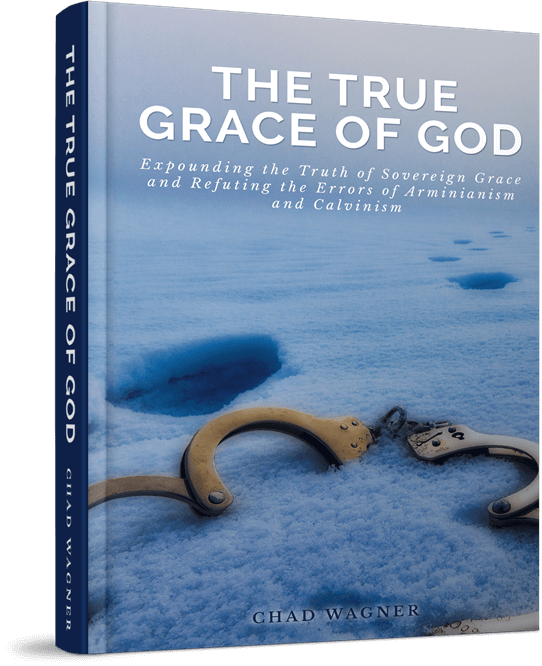Cremation has been growing in popularity over the last few decades and many Christians are wondering whether or not cremation is permissible for them. Some take a hard line against the practice because of its pagan origin and lack of Biblical example and say that Christians shouldn’t do it, while others say that since there is no law against it in the Bible, nor any commandment to dispose of the dead by burial only, that it is therefore a matter of Christian liberty. As always, our question should be, “what saith the scripture?” (Rom 4:3).
In order for something to be sinful, there must be a law of God prohibiting it, for “sin is the transgression of the law” (1Jo 3:4) and “where no law is, there is no transgression” (Rom 4:15). There is no verse in scripture that says “thou shalt not cremate”, nor is there a verse which says “thou shalt only bury thy dead.” In fact, there is at least one instance of cremation in the Bible that was blessed, rather than cursed. After king Saul and his sons fought the Philistines and were killed in battle and their bodies were fastened to the wall of Bethshan, we read:
1Sa 31:11-13 – And when the inhabitants of Jabesh-gilead heard of that which the Philistines had done to Saul; 12 All the valiant men arose, and went all night, and took the body of Saul and the bodies of his sons from the wall of Bethshan, and came to Jabesh, and burnt them there. 13 And they took their bones, and buried them under a tree at Jabesh, and fasted seven days.
When David heard about this, rather than condemning the men for cremating Saul and his sons, he rather blessed them, saying, “…Blessed be ye of the LORD, that ye have shewed this kindness unto your lord, even unto Saul, and have buried him.” (2Sa 2:5)
Cremation is of ancient and pagan origin and was practiced by various cultures including the early Persians and, most notably, the Hindus (Cremation, Wikipedia). For this reason some Christians believe that cremation is sinful, and by doing it, Christians would be learning the way of the heathen, which is forbidden (Jer 10:2). But if this reasoning condemns cremation, it must also condemn the practice of embalming the dead which is also of ancient and pagan origin, which was practiced by the pagan Egyptians, Ethiopians, Peruvians, Aztecs, and Mayans (Embalming, Wikipedia). Many of the same Christians who condemn cremation are silent when it comes to embalming; but to be consistent, they would have to condemn both practices. A Christian is going to have a hard time condemning embalming because two of our great fathers of the faith were embalmed, Israel (Jacob) (Gen 50:2) and Joseph (Gen 50:26), and were not condemned by God for it. If embalming cannot be condemned on the grounds of it being pagan (and it wasn’t in scripture), than neither can cremation be condemned on those grounds.
Some Christians also condemn cremation because they believe it is profaning or desecrating a body, which was bought by God (1Co 6:20) and which He will preserve blameless unto the coming of our Lord Jesus Christ (1Th 5:23). It is true that the body of a saint should be treated with respect and care. But here’s a question for you: how is burning a body (cremation) any more desecrating than pumping it full of formaldehyde (embalming), or feeding it to the worms (burial) (Job 19:26; 21:26; 24:20)? The answer is that none of these things desecrate a body.
Now, don’t get me wrong, I am not supporting, promoting, or encouraging the practice of cremation, but what I am doing is showing that, 1) cremation is not plainly forbidden or declared to be a sin in scripture, and was even blessed in one instance, and 2) if some of the arguments against cremation prove anything, they prove too much and will likewise condemn embalming, and even burial.
So, can Christians cremate their dead? Without a direct prohibition against it in scripture, the answer is yes. But another question that needs to be considered is: should Christians cremate their dead? There are many things that are permissible for a Christian, but not all lawful things are expedient and edifying. “All things are lawful for me, but all things are not expedient: all things are lawful for me, but all things edify not.” (1Co 10:23) The following are reasons why I do not recommend nor encourage Christians to cremate their dead.
The Biblical pattern for disposing of the bodies of the dead in both the Old and New Testaments is burial. Abraham, our father in the faith, bought a piece of land to bury his wife Sarah in (Gen 23:2-20), in which also Abraham (Gen 25:9-10), Isaac (Gen 35:29), and Jacob (Gen 50:13) were buried. When Moses died, the LORD Himself buried him (Deu 34:5-6), and by this we see that God’s own method of disposing of the bodies of His saints is burial. Many other noteworthy Old Testament saints were also buried including Joshua (Jos 24:29-30), Joseph (Jos 24:32), Samuel (1Sa 25:1), and David (1Ki 2:10). This pattern of burying the dead continued in the New Testament times when great men of faith were buried including John the Baptist (Mat 14:10-12), our Lord Jesus Christ (1Co 15:3-4), Stephen (Act 8:2), and even the sinning saints, Ananias and Sapphira, whom God killed for lying to Him (Act 5:1-10).
Jesus was buried, not cremated, after His death (1Co 15:3-4). Our baptism is a picture of the death, burial, and resurrection of Christ (Rom 6:4-5). If Jesus had been cremated, and not buried according to the scriptures, our baptism would have been a baptism of fire, not water (Mat 3:11). If we are going to follow Jesus’ example when it comes to the disposal of our bodies after death, it will be by burial, not cremation.
Another thing to consider is that it was a disgrace to not have a proper burial in the Bible.
Ecc 6:3 – If a man beget an hundred children, and live many years, so that the days of his years be many, and his soul be not filled with good, and also that he have no burial; I say, that an untimely birth is better than he.
Jer 22:18-19 – Therefore thus saith the LORD concerning Jehoiakim the son of Josiah king of Judah; They shall not lament for him, saying, Ah my brother! or, Ah sister! they shall not lament for him, saying, Ah lord! or, Ah his glory! 19 He shall be buried with the burial of an ass, drawn and cast forth beyond the gates of Jerusalem.
Jer 26:23 – And they fetched forth Urijah out of Egypt, and brought him unto Jehoiakim the king; who slew him with the sword, and cast his dead body into the graves of the common people.
Jer 36:30 – Therefore thus saith the LORD of Jehoiakim king of Judah; He shall have none to sit upon the throne of David: and his dead body shall be cast out in the day to the heat, and in the night to the frost.
Nearly every instance of a body being burned in the Bible was an act of judgment. Consider these examples:
When Achan, against God’s commandment, took some of the spoil after Israel destroyed Jericho, his punishment was to be stoned and burned with fire, after which he was buried under a pile of stones.
Jos 7:15 – And it shall be, that he that is taken with the accursed thing shall be burnt with fire, he and all that he hath: because he hath transgressed the covenant of the LORD, and because he hath wrought folly in Israel.
Jos 7:25-26 – And Joshua said, Why hast thou troubled us? the LORD shall trouble thee this day. And all Israel stoned him with stones, and burned them with fire, after they had stoned them with stones. 26 And they raised over him a great heap of stones unto this day. So the LORD turned from the fierceness of his anger. Wherefore the name of that place was called, The valley of Achor, unto this day.
If a man in Israel took a wife and her mother, they were all to be burnt with fire.
Lev 20:14 – And if a man take a wife and her mother, it is wickedness: they shall be burnt with fire, both he and they; that there be no wickedness among you.
The daughter of a priest who played the whore was likewise to be burnt with fire.
Lev 21:9 – And the daughter of any priest, if she profane herself by playing the whore, she profaneth her father: she shall be burnt with fire.
And, lastly, all of the wicked who will be resurrected at the last day will be cast alive bodily into the lake of fire to be cremated.
Joh 5:29 – And shall come forth; they that have done good, unto the resurrection of life; and they that have done evil, unto the resurrection of damnation.
Rev 20:15 – And whosoever was not found written in the book of life was cast into the lake of fire.
All of these cremations were/are judgments on sinners, not honorable ways to dispose of the bodies of saints. A Christian should seriously consider this fact if they are pondering cremation for themselves.
One main reason some Christians are opting for cremation today is because of financial considerations. Because of inflation and other factors, the cost of a modern burial has become a serious financial burden due to the exorbitant costs of a cement vault, a ridiculously and unnecessarily expensive casket, embalming, and other funeral home expenses. Even with that being the case, money should not be a determining factor in this matter, but rather, “what saith the scripture?” (Rom 4:3) should be the primary consideration for a Christian. One can likely find cheaper options for burial if he starts researching and planning now.
Now, what if a loved one of a Christian was cremated, or if a Christian is cremated after death against his will? Will it have any effect on an elect person’s eternal salvation or on their bodily resurrection? No — the bodies of all of the elect whose names are written in the book of life will be resurrected and glorified no matter where they rest or how they were disposed of. It matters not whether they were buried in the ground where worms destroyed them, cast into the sea where they were fish food, or if they were burned to ashes, all will be resurrected and glorified the same.
Job 19:25-27 – For I know that my redeemer liveth, and that he shall stand at the latter day upon the earth: 26 And though after my skin worms destroy this body, yet in my flesh shall I see God: 27 Whom I shall see for myself, and mine eyes shall behold, and not another; though my reins be consumed within me.
Rev 20:12-15 – And I saw the dead, small and great, stand before God; and the books were opened: and another book was opened, which is the book of life: and the dead were judged out of those things which were written in the books, according to their works. 13 And the sea gave up the dead which were in it; and death and hell delivered up the dead which were in them: and they were judged every man according to their works. 14 And death and hell were cast into the lake of fire. This is the second death. 15 And whosoever was not found written in the book of life was cast into the lake of fire.
Php 3:21 – Who shall change our vile body, that it may be fashioned like unto his glorious body, according to the working whereby he is able even to subdue all things unto himself.
In conclusion: where there is no law there is no transgression (Rom 4:15). Therefore, it is not a sin for a Christian’s body to be cremated, but, even though it’s not a sin, it is not recommended or encouraged because it doesn’t fit the pattern of burial found throughout the scripture, it doesn’t follow the example of Jesus Christ, and in the Bible cremation was done in almost every case as an ignominious method of bodily disposal as a judgment against the person for their sin. If a Christian decides to have a loved one cremated, he should at least make sure to bury the remains after the pattern in the scripture and not leave them in an urn on display in his home.








